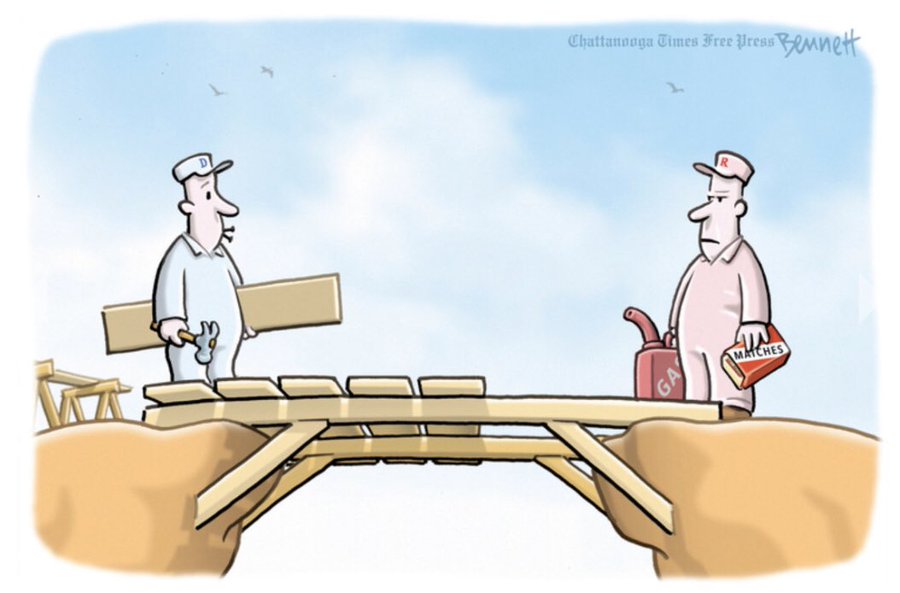There's a common phenomenon in that people with a political axe to grind try to stretch the definitions of commonly used words to suit their purpose. The most well-known example is Bill Clinton attempting to incorporate ambiguity into the definition of is. A more current example is Democrats trying to expand the commonly-applied definition of infrastructure.
Now an author at Slate (an internet publication that mixes liberal opinions and thought with an extremely generous portion of politically charged and emotion-provoking language) wants to describe what Peter Thiel did with his taxes as taking advantage of a loophole.
In this piece, there's no indication of anything close to a loophole. My definition of a loophole would be when someone, through investigating alternatives and the fine print, finds a maneuver in which she can do something in an indirect manner that is ostensibly forbidden. An example is the back-door Roth IRA. While it's legal, it takes additional knowledge and research, and several more steps to get around the intended and articulated income restriction for a Roth contribution. Another example is delaying the Sheliak from eradicating a colony by calling for a contractually agreed upon arbitration by a race that is currently in hibernation.
While that's how I, and I would venture the average person thinks of a loophole, my takeaway is that the author believes a loophole to be "a result different from what was intended or is typical." What Thiel did was to, when he was middle-income, before he was wealthy beyond imagination, put an amount of money, which was below the maximum contribution at the time, into his Roth IRA. The same as many millions of similarly-situated Americans. He did nothing they couldn't have done. Where his experience diverged, however, was that he used that money to buy an investment not available to them. (This detail was not included in the Slate article).
In essence, he used the Roth IRA to get around taxes for an investment, which is what it was designed to do. I strain to think of a way in which this can be described as taking advantage of a loophole. What exactly is the loophole that he found? To be a loophole, his action must run afoul of the intent of the law.
While he may have eventually used it in ways not anticipated, there is no single action Thiel took that I'd describe as taking advantage of a loophole. The aspect that comes closest is that he used his money to purchase stock not available to the public. But this is common enough, especially among professional investors, that I don't see it as taking advantage of a loophole. Imagine, you have a Roth IRA, and you also have a regular account. You want to purchase non-public shares; which account do you purchase them for? Doesn't it stand to reason that you choose the one that will have the lowest total costs? People make this decision every day, and it's not considered taking advantage of a loophole. If a regular Joe or Jill invested money from their Roth IRA in a company that exploded, or a crypto currency, or an IPO and became fabulously wealthy, would you say they took advantage of a loophole? Why should Thiel be described differently?
In this case, my conclusion is that certain people want to call this a loophole because of the parties involved and the amounts eventually involved.
None of the above is to say that I wouldn't be in favor of changes to the Roth IRA to prevent some of this. I would probably support a size limit on a Roth and other potential changes to prevent such massive accumulations. Another limitation I might support would be restricting purchases to investments available to the public.
As an aside, I don't know how much of it is to appeal to readers' sense of outrage in order to get clicks or that rich people and Republicans and especially rich Republicans drive certain people into a frenzy, but we should not encourage screeds that claim that legal and not even tricky financial decisions "induce apoplexy" or describing a rich Republican as a "comic book villain."
The author also claims without evidence that Thiel "generally seems to view taxes as theft." He links to nothing here, and I can find nothing to corroborate this opinion. In this interview, Thiel talks about taxes in terms of international competitiveness. Taxes should be simplified, lower marginal rates, consumption over savings. He also states that the lower effective rate on rich people raises legitimate questions.
As a second aside, it's also interesting to observe the magnitude to which certain elements warp people's judgment, obscuring to them the truth and causing them to see evil where none exists. In this case, the immensity of the wealth, coupled with the fact that it's Peter Thiel, and also that the wealth is going untaxed make for a trifecta of apoplexy-inducing factors.
The original ProPublica piece has much more detail and information in it.

